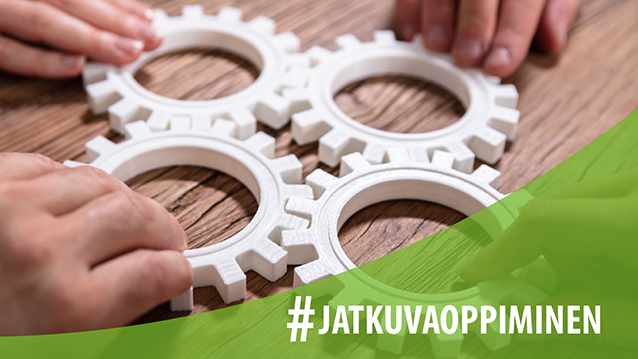Service system for continuous learning takes shape — new cooperation to develop competence

The parliamentary group that has been working to reform continuous learning has outlined how competence-related services should be recorganised to better serve the needs of people and working life. These policies give shape to the new service system for people of working age. Later, the parliamentary group will also examine issues related to learning, guidance and foresight at workplaces and income during studies.
- The world of work is changing fast and in many ways. That is why we need to overhaul continuous learning in an innovative way. It is important to make sure that people are can update their competence throughout their life. The first policies to implement the reform have now been adopted, says Li Andersson, Minister of Education and chairperson of the parliamentary group.
Creating the service system for continuous learning includes three elements: 1) reforming services related to the competence of people of working age, 2) improving the match of labour supply and demand and 3) reinforcing regional ecosystems of competence. At the same time, we must make sure that young people have access to quality education.
Regional development is supported proactively and in a way that allows rapid responses to acute changes. In practice this means making skilled labour more readily available and encouraging the development of production and services, for example. People should be able to update their competence to improve their position in the labour market when such a need arises. Services that can respond to urgent needs, sets of competencies that transcend educational levels and meet the needs of working life, and compact, tailored alternatives for combining work and study must be available.
A qualification or degree tells employers that the holder has the knowledge and skills defined in the qualification or degree. It also proves that the holder has solid competence and offers the holder a basis for continuous learning. This is why we must make sure that young people receive quality education in comprehensive school and are given opportunities to continue with their studies. In this sense, the education system and the service concept of continuous learning complement each other.
- Higher education institutions must be strongly involved in responding to competence demand. Tertiary-level competence is needed more and more, and the changes in the world of work means that competence must be updated, Minister of Science and Culture Hanna Kosonen says.
One of the central elements in reforming continuous learning is to improve regional and national coordination in developing competence. By the end of June, the Ministry of Education and Culture and the Ministry of Economic Affairs and Employment will prepare a report on how policies and services shared by different parties should be organised and implemented at national and regional levels. Organisational arrangements would make use of the current resources and new operating models in a way that takes existing structures and future changes to regional administration into account. The tasks of the new service organisation would include improving the matching of labour demand and supply and coordinating cooperation between educational institutions other service providers.
- Stronger cooperation is vital in order to meet the competence needs of employers swifter and more accurately and to improve the competence of both employed and unemployed people. Also, these exceptional circumstances require investments in competence so that we can emerge from this crisis stronger than ever. At the same time, we have to diversify study opportunities and make sure that they are readily available to everyone, says Minister of Employment Tuula Haatainen.
Creating a digital ecosystem of continuous learning can support the services. The system should collect information on study opportunities into an easy-to-use format that serves all citizens and the world of work. The system would include services related to competence, such as mapping out competence and recognition of competence as well as guidance and career planning services.
More about reforming continuous learning
Inquiries:
- Kirsi Heinivirta, Senior Ministerial Adviser, Ministry of Education and Culture, tel. +358 295 330 136.
- Teija Felt, Labour Market Counsellor, Ministry of Economic Affairs and Employment, tel. +358 295 049 080

